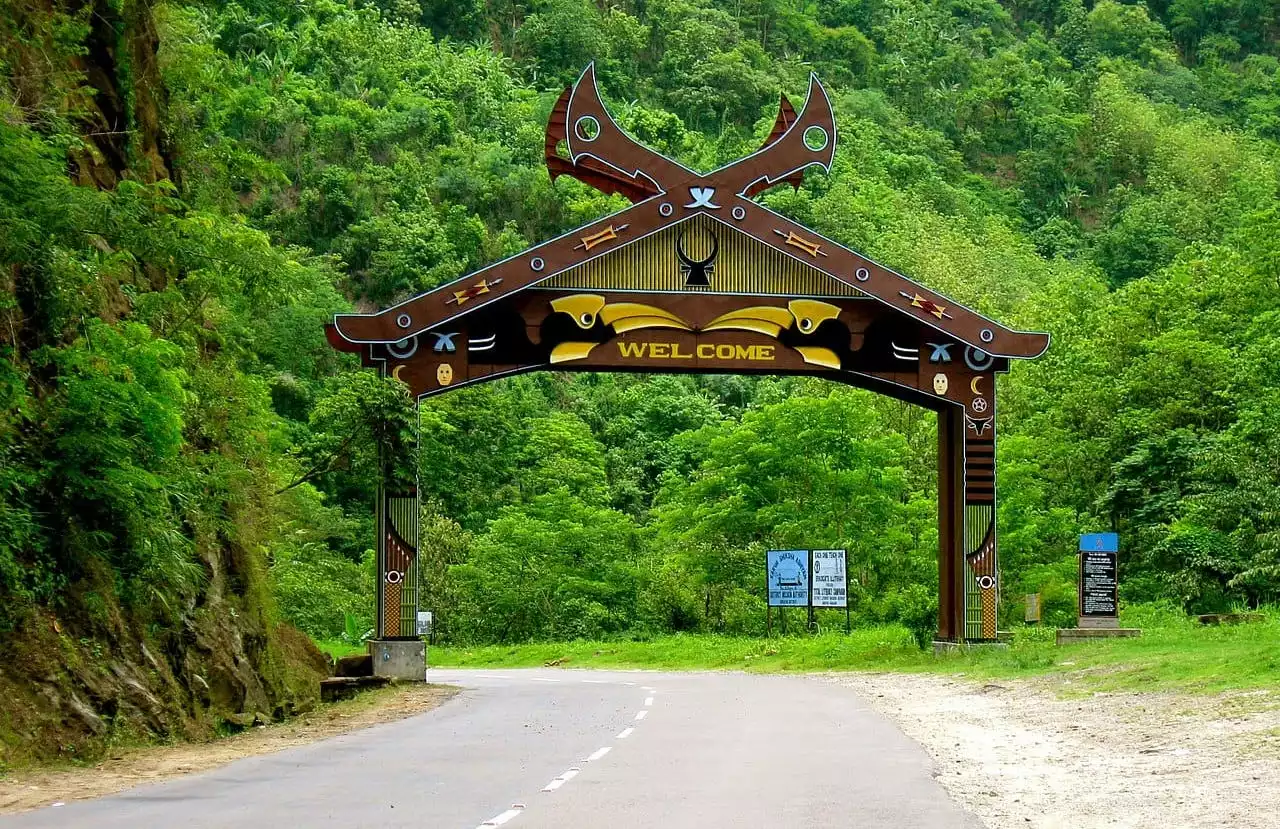For most of human history, the majority of human beings lived outside state control or authority, ‘’under loose-knit empires or in situations of fragmented sovereignty’’. It is only in the last few centuries that such non state spaces have increasingly shrunk and people living there have been incorporated into the populace of nation states, which have become hegemonic units of sovereignty. Today, it may seem odd to even imagine human civilization without any form of state, from kingdoms to modern nation states. Yet, living outside the authority of state was at some point a choice, that was political in nature, made my millions of people across the world. One such space is located in mainland southeast Asia. The areas above 300 or so meters in altitude in this region has been one of the largest non-state populations. James C. Scott in his work ‘’The art of not being governed: an anarchist history of southeast Asia’’ makes this very fascinating argument. The book and the arguments(s) that he makes are like a refreshing breeze that offers a critical departure from the more usual liberal/state-centric ways and theories of studying, especially the social spaces of what we call the natives or the indigenous peoples across the world.

The first chapter of the book is more than just a primer. One of the longest chapters in the entire book, it offers an overview of all the major arguments that are made in rest of the chapters. The above-mentioned social space in the southeast Asian mastiff has been termed ‘Zomia’. ‘Zo’ in many languages in the region (including kuki and Mizo) refers to people and ‘Mi’ refers to land. The term first coined by Wilhelm Van schendel, is used extensively by James Scott. As the name suggests, he develops an anarchist theory of the said region. He states that Zomia and her people have historically lived as peripheries to the classical kingdoms, which were exclusively centered in the valleys. They practiced shifting cultivation and kept constantly moving from place to place. He develops the theory that these people, who are considered as residue of civilization, or barbarians, backwards and what not, are actually contemporaneous to other settled civilizations. It was in fact a political choice that they made to live outside the control of the state. They are what can be called runaway people who refused to pay taxes to the state. Tax in the form of grain forms the central concern of James Scott’s theory. They instead chose to cultivate untaxable or difficult to tax produces like roots and fruits. Over a period of time, they developed distinct identities, languages and cultures. The region ended up becoming one of more diverse areas of the world. Colonial powers, when they tried to annex these areas had a hard time rendering legible the ways of life of the people. Post-colonial nation states as well were faced with the same obstacle. Armed struggle to the post-colonial sovereigns by the people of Zomia has been one of the popular strategies to resist all pervasive internal colonialism.

Political control over zomia, argues James Scott in the second chapter, runs out of breath when faced with the ‘friction of distance’. Humans are popularly believed to be land dominating species. But, a more historically grounded observation reveals that they travel the farthest and exert influence the greatest across water bodies than land mass. The kingdoms of the valleys had more similarities with lands hundreds of miles away than the hills that surround them. In fact, the region is so distinctly diverse that Jacobs Julian in his study of present say Nagaland had called it an ‘ethnographic mess’. This is generalizable across the world. The Roman empire was essentially a Mediterranean empire and not European, as argued by Fernand Braudel in his work ‘’The Mediterranean world’’. It is only the arbitrariness imposed by modern colonial powers and nation sates that otherwise historically entangled cultures are divided and artificial civilizational boundaries are created. In ‘black Athena: the Afro-asiatic roots of classical civilizations’, Martin Bernal argues how the roots of Greek civilization was Asia and Africa and not mainland Europe. As a consequence, the ‘history less’ run away people are integrated into the understanding of nation. The process is without fail violent: direct and otherwise. Such groups of people can be found round the world. The people of the Amazons in south America to escape the state climbed down the mountains into the more inhospitable dense forests. The Berbers of North Africa chose to live in the desert rather than pay taxes and live under state authority. Ernest Gellner calls it ‘Marginal tribalism’.

Most modern theories of state and sovereignty do gross injustice to Zomia and other similar spaces. State centric understanding of sovereignty coupled with formation of states around the core of the classical kingdoms has made the people of Zomia the other. James Scott suggest the sankritic theory of Mandala to understand the elementary units of political order. Sovereignty in this region of the world was not strictly defined as was in Europe. The existence of dual sovereignty may bewilder European scholars. Kingdoms were rather loosely defined circles of influence that most of the time intersect each other. In Zomia, villages were mostly the political units. Mandala theory is in fact gaining popularity among decolonial scholars like Aditya Nigam, who concern themselves with the study of non-European spaces and ways of being. Thanks to state mimicry, the ‘village states’ of Zomia at times grew bigger than village as the political unit and took shape of some sort of clan-based rule. James Scott calls it cosmological bluster. These rules had only the rudimentary materials of the Indic or the Chinese kingdoms.
The art of not being governed with its materially grounded study offers a quintessentially anarchist approach to the study of Zomia. The hills of Zomia stood in a dialectical relation with the valleys. While historically the two socio-geographical spaces did have interdependent economic and cultural ties, it was never a relation of authority. The free people of Zomia offered a non-state centric definition of sovereignty by willingly taking the political decision of not being governed.






